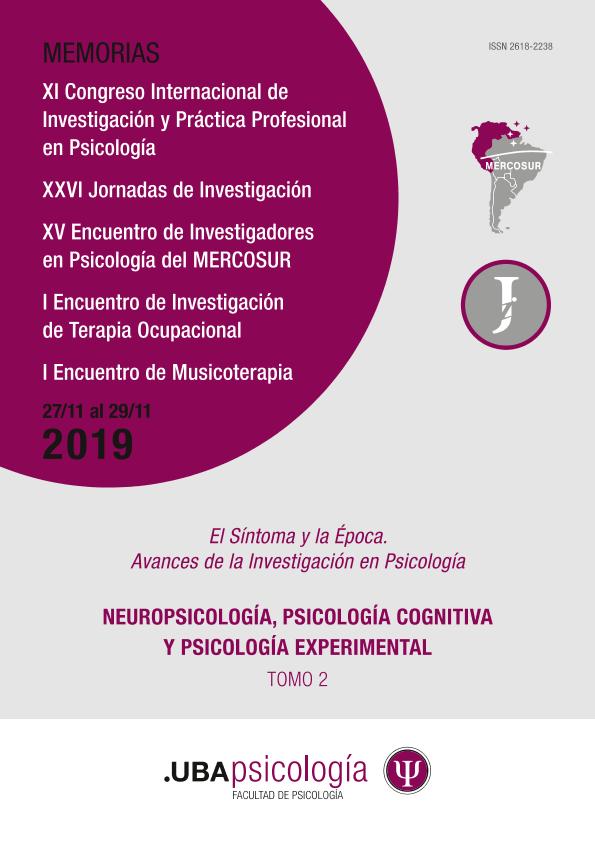Evento
Los pacientes con esquizofrenia presentan dificultades para comprender historias donde se deba inferir los pensamientos,creencias o intenciones. Esta dificultad para generar inferencias mentalistas podría deberse a un funcionamiento deficitario de las habilidades comprendidas en el constructo "Teoría de la Mente" que permiten inferir los contenidos mentales delos otros (Frith, 1992; Gavilán, 2011; Mo et al., 2008; Tirapu Ustárroza et al., 2007). El objetivo de este trabajo fue estudiar el rendimiento de 10 pacientes de entre 20 y 45 años, con al menos 12 años de escolarización, en la prueba de comprensión de discurso narrativo mentalista del Protocolo MEC (Ferreres etal., 2007). Se tomaron en cuenta para este estudio las preguntas de comprensión (literales e inferenciales) sobre la historia y la colocación de un título. Los resultados muestran que los pacientes presentaron mayores dificultades en las preguntas sobre contenidos mentales e intenciones de los distintos personajes.Asimismo, presentaron títulos que no reflejan la generación de inferencias mentalistas centrales para una eficaz comprensión textual. En consonancia con los estudios previos sobre esta población, estas dificultades específicas para inferir y comprender los estados mentales ajenos pueden estar relacionadas con un déficit en las habilidades de teoría de la mente. Patients with schizophrenia have problems to understand stories in which thoughts, beliefs or intentions must be inferred. This disturbance to generate mental inferences could be due to a deficient performance of the skills involved in “Theory of the Mind” construct, which allows to infer the mental contents of the others (Frith, 1992, Gavilán, 2011, Mo et al., 2008; Tirapu- Ustárroza et al., 2007). The goal of this work was to study the performance of 10 patients aged between 20 and 45 years, with at least 12 years of schooling, in the MEC Protocol comprehension test of mentalistic narrative (Ferreres et al., 2007). The comprehension questions (literal and inferential) about the history and setting of a title were taken into account for this study. The results show that the patients presented greater difficulties in the questions about mental contents and intentions of the different characters. Likewise, they presented titles that do not reflect the generation of central mentalist inference for an effective text comprehension. In line with previous studies on this population, these specific difficulties in inferring and understanding the mental states of others may be related to a deficit in the theory of mind skills.
Alteraciones en la generación de inferencias mentalistas en esquizofrenia
Título:
Disturbances in the generation of mental inferences in schizophrenia
Tipo del evento:
Congreso
Nombre del evento:
XI Congreso Internacional de Investigación y Práctica Profesional en Psicología, XXVI Jornadas de Investigación, XV Encuentro de Investigadores en Psicología del MERCOSUR, I Encuentro de Investigación de Terapia Ocupacional, I Encuentro de Musicoterapia
Fecha del evento:
27/11/2019
Institución Organizadora:
Universidad de Buenos Aires. Facultad de Psicología;
Título de la revista:
Memorias Jornadas de Investigación y Encuentro de Investigadores en Psicología del Mercosur
Editorial:
Universidad de Buenos Aires. Facultad de Psicología
e-ISSN:
2618-2238
Idioma:
Español
Clasificación temática:
Resumen
Archivos asociados
Licencia
Identificadores
Colecciones
Eventos(CIIPME)
Eventos de CENTRO INTER. DE INV. EN PSICOLOGIA MATEMATICA Y EXP. "DR. HORACIO J.A RIMOLDI"
Eventos de CENTRO INTER. DE INV. EN PSICOLOGIA MATEMATICA Y EXP. "DR. HORACIO J.A RIMOLDI"
Eventos(SEDE CENTRAL)
Eventos de SEDE CENTRAL
Eventos de SEDE CENTRAL
Citación
Alteraciones en la generación de inferencias mentalistas en esquizofrenia; XI Congreso Internacional de Investigación y Práctica Profesional en Psicología, XXVI Jornadas de Investigación, XV Encuentro de Investigadores en Psicología del MERCOSUR, I Encuentro de Investigación de Terapia Ocupacional, I Encuentro de Musicoterapia; Ciudad Autónoma de Buenos Aires; Argentina; 2019; 109-110
Compartir




